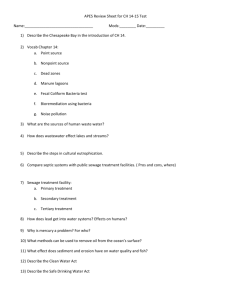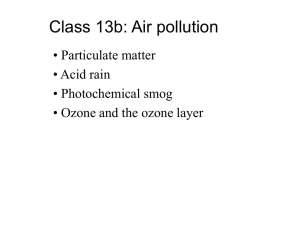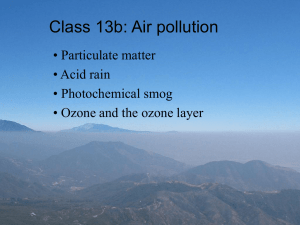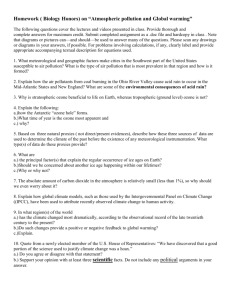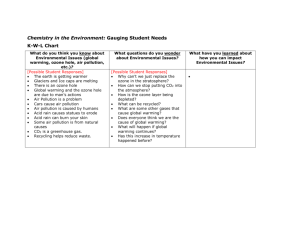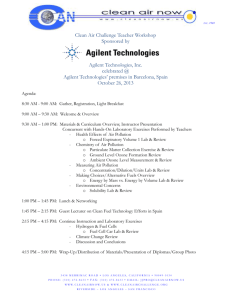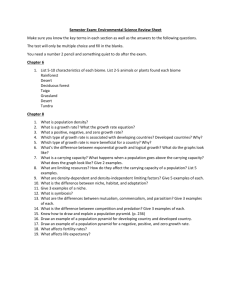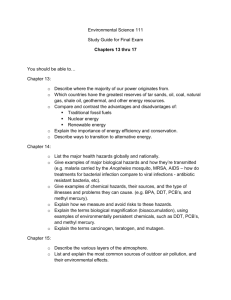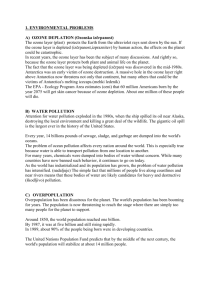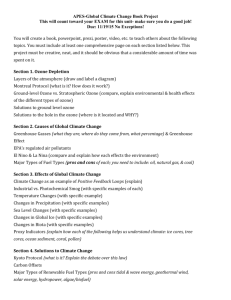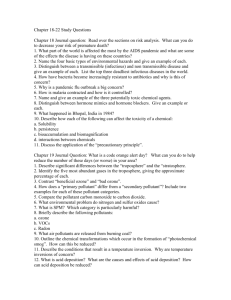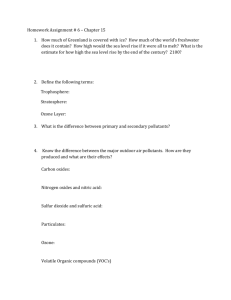Pollution from Ozone Black Carbon
advertisement
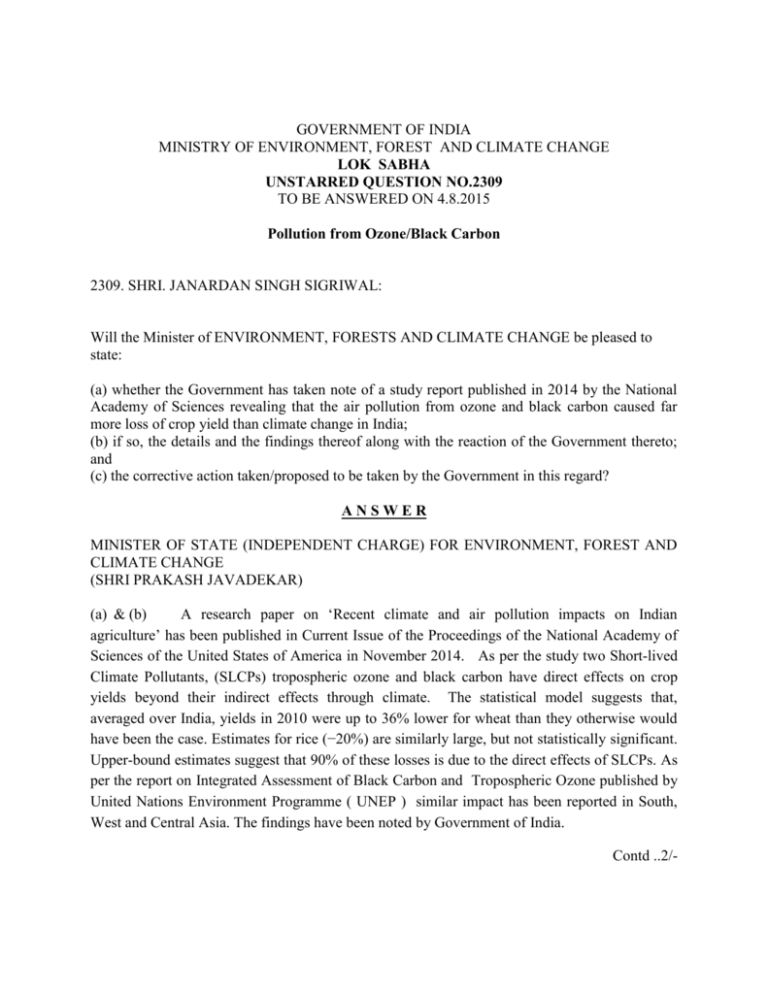
GOVERNMENT OF INDIA MINISTRY OF ENVIRONMENT, FOREST AND CLIMATE CHANGE LOK SABHA UNSTARRED QUESTION NO.2309 TO BE ANSWERED ON 4.8.2015 Pollution from Ozone/Black Carbon 2309. SHRI. JANARDAN SINGH SIGRIWAL: Will the Minister of ENVIRONMENT, FORESTS AND CLIMATE CHANGE be pleased to state: (a) whether the Government has taken note of a study report published in 2014 by the National Academy of Sciences revealing that the air pollution from ozone and black carbon caused far more loss of crop yield than climate change in India; (b) if so, the details and the findings thereof along with the reaction of the Government thereto; and (c) the corrective action taken/proposed to be taken by the Government in this regard? ANSWER MINISTER OF STATE (INDEPENDENT CHARGE) FOR ENVIRONMENT, FOREST AND CLIMATE CHANGE (SHRI PRAKASH JAVADEKAR) (a) & (b) A research paper on ‘Recent climate and air pollution impacts on Indian agriculture’ has been published in Current Issue of the Proceedings of the National Academy of Sciences of the United States of America in November 2014. As per the study two Short-lived Climate Pollutants, (SLCPs) tropospheric ozone and black carbon have direct effects on crop yields beyond their indirect effects through climate. The statistical model suggests that, averaged over India, yields in 2010 were up to 36% lower for wheat than they otherwise would have been the case. Estimates for rice (−20%) are similarly large, but not statistically significant. Upper-bound estimates suggest that 90% of these losses is due to the direct effects of SLCPs. As per the report on Integrated Assessment of Black Carbon and Tropospheric Ozone published by United Nations Environment Programme ( UNEP ) similar impact has been reported in South, West and Central Asia. The findings have been noted by Government of India. Contd ..2/- -2(c) Number of measures have been taken by the Government to control emissions of black carbon and pre-cursors like Oxides of Nitrogen (NOx), Volatile Organic Carbon(VOC), etc. essential for formation of Ozone which inter-alia include, notification of emission standards for various categories of industries and gensets; introduction of cleaner fuels (B.S. III/IV) as per the Auto Fuel Policy in selected cities and towns; ban on biomass burning, use of beneficiated coal for coal based thermal power plants; enforcement of stringent Pollution Under Control (PUC) Certificate scheme to check exhaust emissions from in-use vehicles; strengthening of mass public transport including, establishment of metro rail, etc. A National Carbonaceous Aerosol Programme has been launched to undertake study on the sources and impact of black carbon. ***
